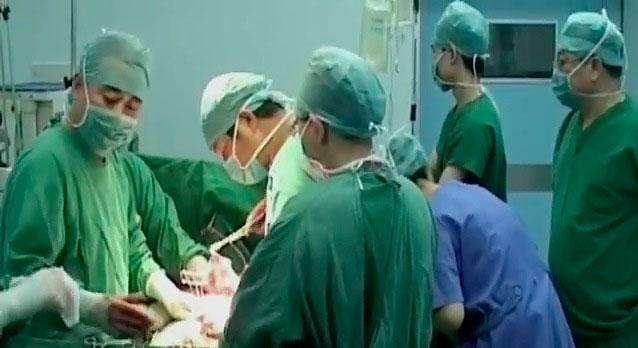As doctors in the organ transplant profession convene for a global conference in Spain this week, one Chinese surgeon scheduled to speak has been called out for his violations of ethics.
Zheng Shusen, a top surgeon specializing in liver transplants and the president of the Zhejiang Medical University’s First Affiliated Hospital, has performed thousands of organ transplants—likely with organs forcibly taken from prisoners in China, according to International Coalition to End Transplant Abuse in China (ETAC), a transplant ethics group.
On July 2, ETAC, a group that includes doctors, lawyers, and professors of ethics, drafted a letter to key members of conference organizer The Transplantation Society (TTS), outlining Zheng’s past unethical actions.
Zheng is scheduled to speak at a conference session on July 2.
The group called on TTS to withdraw Zheng’s invitation to participate in the Spain conference and to ban him from all future TTS events. “His presence at TTS makes a mockery of international ethical standards in organ transplantation and undermines efforts to support ethical transplant practices in China,” the letter read.
At the time of writing, TTS has not responded to a request for comment.
Chief among the allegations is that Zheng has committed crimes in his organ transplantation work.
For the past two decades, patients in desperate need of an organ transplant have traveled to China for surgery, where they are able to procure a matching organ within days, weeks, or months—far shorter than the waiting periods in their home countries, where organs are obtained from donations.
Through extensive investigations conducted by independent researchers, evidence has emerged that the Chinese regime is harvesting organs from prisoners of conscience, most of whom are adherents of the spiritual practice Falun Gong, a meditation-based discipline that has been severely suppressed by the Chinese regime since 1999. Most are killed in the process.
Both ETAC and WOIPFG pointed out that Zheng authored a paper in 2005 that documented his performance of 46 emergency liver transplant surgeries between 2000 and 2004—a time when China had no voluntary donor system in place and all death row prisoners were executed within seven days. Given the unlikely scenario that 46 prisoners happened to have their execution coincide with a patient in need of a liver transplant, while also having a compatible blood type, “such transplants suggest that non-death row captive individuals were killed extrajudicially and on demand for their organs,” the ETAC letter read.
Zheng also has direct ties to the Chinese regime’s persecution of Falun Gong. From 2007 to 2017, he was chairman of the Zhejiang branch of the China Anti-Cult Association, an agency created to spread vilifying propaganda against Falun Gong and come up with methods to coerce practitioners into giving up their faith.
Local offices of the association work closely with local 610 Office branches, a secret police force established for the sole purpose of carrying out the persecution of Falun Gong.
Notably, Zheng has been called out by the medical community before. At the TTS conference held in Hong Kong in 2016, Zheng gave a presentation with research involving organs from executed prisoners—a violation of TTS rules. Then-chair of the TTS Scientific Program Committee Jeremy Chapman told attendees that Zheng would never present at a TTS conference again.
Several months after the 2016 conference, the medical journal Liver International published a paper co-authored by Zheng, which was soon retracted after several doctors pointed to inconsistencies in his data that claimed that all liver transplants performed at Zheng’s hospital were from voluntary, deceased donors. Liver International then imposed a lifetime embargo on Zheng and his co-authors.
TTS turning “a blind eye” to academic fraud and its own conference rules means “they are not only compromising the integrity of the organization and its reputation, they are failing to live up to their own ethical code of practice,” ETAC Executive Director Susie Hughes wrote in an email.
Furthermore, allowing Zheng to present sends the message that “there is no penalty for the most unethical practice, thus no incentive to change, and also no justice for the victims of Dr. Zheng,” said chair of ETAC’s International Advisory Committee, Wendy Rogers.
This is also not the first time a problematic Chinese official has appeared at an international conference. On May 24, Huang Jiefu, former health minister and current head of the Organ Transplantation Committee in China, spoke at an event of the World Health Organization (WHO) in Geneva, Switzerland, where he claimed that Chinese transplant surgeries between 2010 and 2018 were mostly from voluntary organ donations.
Torsten Trey, the executive director of Doctors Against Forced Organ Harvesting (DAFOH), a medical advocacy group based in Washington, questioned the veracity of the data.
“Huang Jiefu does not provide any access to transparent transplant data, which makes it impossible to verify where the organs come from. Evading the crucial step of transparency does not help China to gain credibility in the international community,” Trey said in an email interview at the time.





